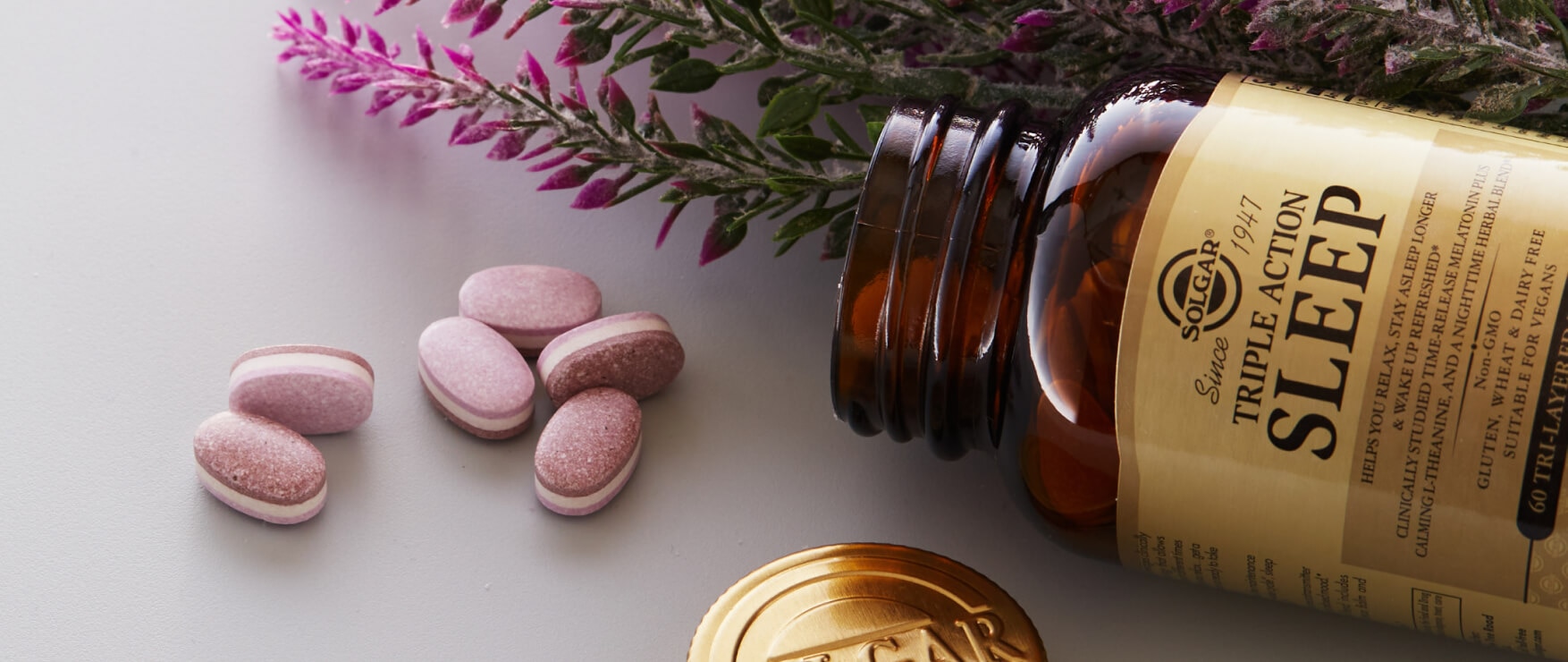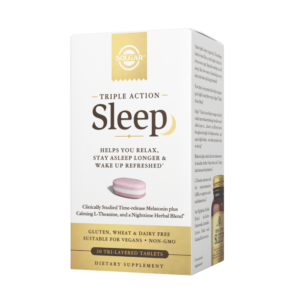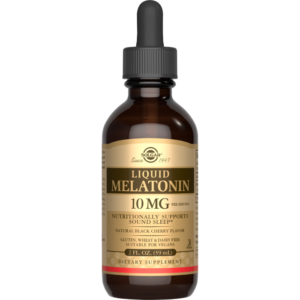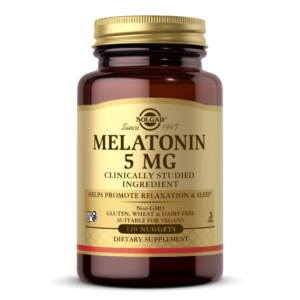Key Takeaways:
- “Sleep insufficiency” occurs when you sleep for a shorter amount of time than your body requires, or you have low-quality sleep. “Sleep deprivation” refers to going a whole night without sleep, or getting very little sleep for one or two nights.
- “Sleep deprivation” refers to not getting enough sleep due to external factors like a busy schedule or lifestyle, like going a whole night without sleep, or getting very little sleep for one or two nights.
- Both are temporary and can be supported with a supplement that supports sleep*
Are you sleep-deprived? Or just tired? Not getting enough sleep and being sleep-deprived are different, but both can affect your health. Let’s take a look at the symptoms of sleep deprivation, how it impacts your health, and some supplements you can take to support quality sleep.
What is sleep deprivation?
People often say they’re “sleep deprived,” but what does that actually mean? There’s an acute difference between “sleep insufficiency” and “sleep deprivation.” “Sleep deprivation” is when you don’t get enough sleep due to external factors, like having a busy schedule and going a whole night without sleep, or getting very little sleep for one or two nights.1 “Sleep insufficiency” means sleeping for a shorter amount of time than your body needs or having low-quality sleep due to disruptions.2 Both are temporary and can be supported with a supplement that supports sleep.*
Signs you might be sleep-deprived
So, are you experiencing temporary sleep deprivation? Here are some signs you may be sleep-deprived:
- You have reduced alertness & slow reaction times
- You have trouble paying attention
- You have reduced cognitive ability and impaired logical reasoning
- You experience temporary mood changes or irritability
- You have a reduced sex drive
- You exhibit poor judgment
- You take brief daytime sleep periods, called microsleeps
- You take unplanned naps
- You experience reduced quality of life
- Your social activity is reduced due to tiredness
Effects of sleep deprivation
Sleep deprivation and sleep insufficiency can be more than just a nuisance. Let’s look at a few ways sleep deprivation may affect your life:
Temporary mood changes
When you don’t get enough sleep, you’re more likely to experience occasional mood changes. Sleep deprivation can make pre-existing mood disturbances worse, like anger, stress, and melancholy.3 You may also have less interest in sex, and struggle to make good decisions.4
Health impacts
Sleep plays a big part in your health, so not getting enough sleep can have a serious impact on things like heart health, immune health, and metabolism.5
Cognitive impairments
One of the most noticeable effects of not getting enough sleep is impaired mental function. When you lack sleep, you may become less alert and have more trouble multitasking or staying focused. According to the Sleep Foundation, even after just one night of short sleep, your reaction times become slower, logical reasoning worsens, and your ability to perform tasks like reading complex sentences and doing simple math worsens.6
Daytime sleepiness
It may seem obvious, but not getting enough sleep will make you feel tired during the day. A lack of energy can stop you from doing the things you enjoy and can cause problems at work, school, or in relationships. Not getting enough sleep may even cause you to experience microsleep. Microsleep is when you unexpectedly fall asleep for a short period, even just for a few seconds. Microsleep can be especially dangerous when driving.7
Supplements that support occasional sleeplessness*
1. Triple Action Sleep
With three layers of ingredients, this unique formula can help you stay asleep longer and wake up feeling refreshed during times of occasional sleeplessness.*
Each tablet contains:
- Melatonin: an important factor in your sleep-wake cycle; Triple Action Sleep contains both quick-release melatonin to help you fall asleep faster and time-release melatonin to help you stay asleep longer.*
- L-Theanine: an amino acid that interacts with the neurotransmitter GABA to support a calm and relaxed mood.*
- Nighttime Herbal Blend: made up of chamomile, lavender, lemon balm, and valerian root extracts.
Triple Action Sleep uses clinically-studied, time-release melatonin that’s released throughout the night to work with your body’s natural sleep cycle to help you stay asleep.*
2. Liquid Melatonin
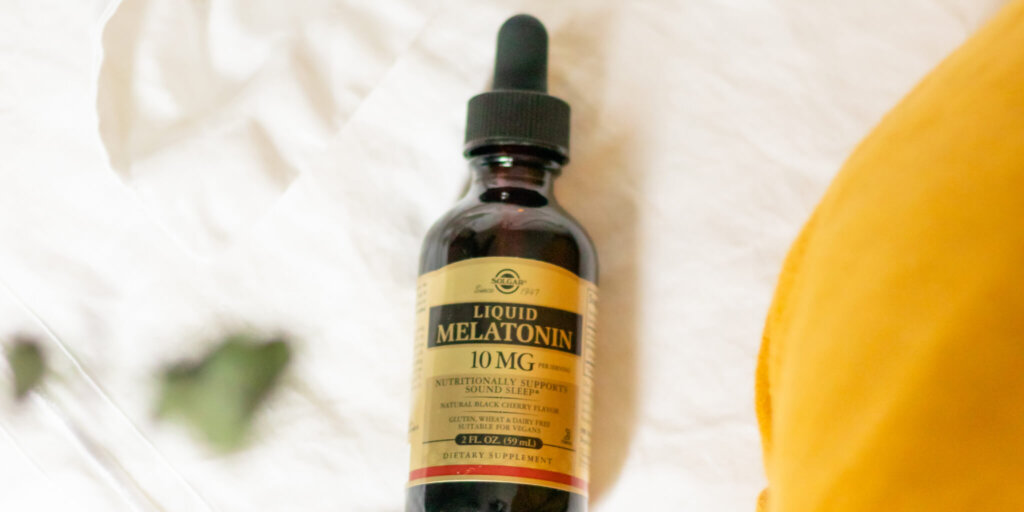
A single 1 mL drop of this black-cherry-flavored liquid melatonin at bedtime can help:
- Alleviate occasional sleeplessness*
- Alleviate normal jet lag symptoms*
- Promote sound, quality sleep*
- Maintain a normal biological rhythm*
- Support waking up feeling refreshed and revitalized*
And, it’s vegan, gluten-free, dairy-free, and kosher.
3. Melatonin 5 mg Nuggets
Solgar® Melatonin 5 mg Nuggets are a great choice for anyone experiencing occasional sleeplessness or jet lag, or simply wanting to promote sound, quality sleep.*
This product works with your natural sleep cycle to give you the tranquil rest you deserve, so you can wake up feeling refreshed and revitalized.*
Other tips for better sleep
1. Create a pre-bedtime routine
The hours leading up to when you go to sleep can affect the quality of your rest. Here are a few things you may want to add to your bedtime routine:
- Listen to music: 62% of people listen to music to help them sleep.8
- Stretch and breathe: Relaxation techniques like deep breathing exercises can help you let go of physical and mental tension, by instead focusing on your body and mindfully relaxing. A daily yoga routine has been shown to improve sleep quality.9
- Write a to-do list: One study found that taking a few minutes to jot down a to-do list for the next day significantly sped up sleep onset.10
2. Take a supplement to support relaxation
Sometimes your body needs a little help relaxing. 5-HTP is an amino acid that supports your brain’s production of serotonin.* Solgar®️ 5-HTP helps to promote both a positive mood and a state of relaxation.* It’s also non-GMO, vegan, gluten-free, dairy-free, kosher, and halal.
3. Turn off your screens
Scrolling on your phone or watching TV before bed may make it harder for you to fall asleep. The blue light from your screens can slow the production of melatonin, the hormone that makes you feel sleepy. Instead, try putting your phone away an hour before bedtime, and read a book or listen to soothing music instead.
4. Create a sleep-inducing environment
An essential part of improving your sleep is making your bedroom a place of comfort and relaxation. A quality mattress, pillow, and bedsheets can help you more comfortably relax. If your space is not as quiet as you need, try using a white noise machine to drown out disruptive sounds, and blackout curtains to keep light from disrupting your sleep. Introducing pleasant aromas, such as lavender, can help soothe you as you fall asleep.
GET THE LATEST UPDATES AND EXCLUSIVE DEALS WHEN YOU SIGN UP FOR OUR NEWSLETTER!
Summing it up
Not getting enough sleep can lead to temporary cognitive impairments and mood changes. However, taking supplements, creating a pre-bedtime routine, and cultivating a calm, sleep-inducing environment can help support quality sleep.*
Want easy tips on staying healthy? Follow us on TikTok! (@solgarvitamins)
*These statements have not been evaluated by the Food and Drug Administration. These products are not intended to diagnose, treat, cure or prevent any disease.
The information provided on this site is intended for your general knowledge only and is not a substitute for professional medical advice or treatment for specific medical conditions. Always seek the advice of your physician or other qualified healthcare provider with any questions you may have regarding a medical condition. The information on this website is not intended to diagnose, treat, cure or prevent any disease. Never disregard medical advice or delay in seeking it because of something you have read on the Solgar® site.


